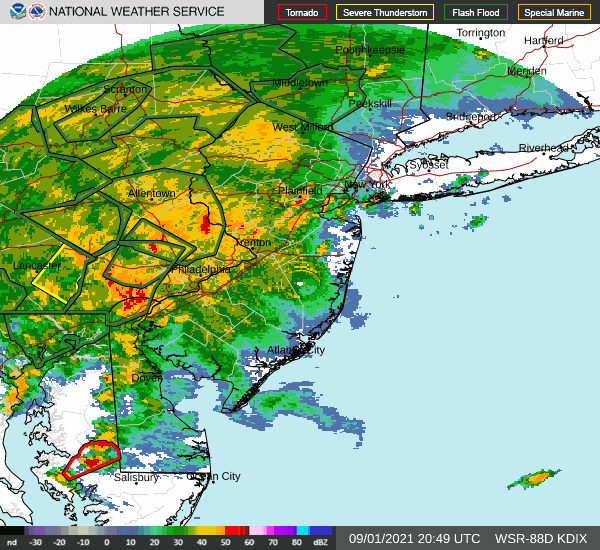NWS Philadelphia/Mt Holly - https://www.weather.gov/phi/
Hurricane Ida stripped the native tribes of Louisiana of any luck left protecting them. Since the hurricane ravaged New Orleans in August, the coastal tribes of Louisiana have been slowly trying to rebuild with very little help.
Disasters, by a combination of luck and historical prejudice, tend to hurt minorities the most. The history of colonization, displacement, racism, and ignorance by the American government has left native tribes some of the most vulnerable communities in the country. By being in a state constantly exposed to climate change and natural disasters, Louisiana’s native tribes continue to be put in danger.
The tribes hurt by Hurricane Ida include the Pointe-au-Chien Indian Tribe, Isle de Jean Charles Tribe of Biloxi-Chitimacha-Choctaw Indians, Grand Caillou/Dulac Band of Biloxi-Chitimacha-Choctaw Indians, Bayou Lafourche Band of Biloxi Chitimacha Choctaw Indians, Chitimacha Tribe, and United Houma Nation.
Besides the Chitimacha Tribe, the other five tribes hurt by Hurricane Ida are not federally-recognized, and therefore did not receive federal assistance after the hurricane.
The hurricane damaged many of these communities beyond recognition. According to nola.com, only 15 homes were livable in the Pointe-au-Chien Tribe after the hurricane, 75% of homes were destroyed in the United Houma Nation, and most homes were damaged in the Isle de Jean Charles Tribe.
Hurricane Ida forced a new wave of displacement for indigenous people in southeast Louisiana. Electricity, gas, infrastructure, water, shelter — all of it was gone for so many people. The native tribes of Louisiana do not control the power grid and the gas and water that comes to their homes; they rely on neighboring businesses and large corporations. These businesses failed them, and now land that has been home to these tribes for hundreds of years feels like a stranger.
“People are crying out for help,” John Silver, executive director of the Inter-Tribal Council of Louisiana, told Vice.
Because of the lack of federal recognition for most southeast Louisiana tribes, community relations become even more important. When the government does not step up, neighbors have a duty to form a support system. Southeast Louisiana’s native tribes’ support system has been missing for centuries.
These tribes are so vulnerable because of historical systemic discrimination, but that does not mean the future is hopeless. Hurricane Ida especially hurt the tribes’ ability to recover because of the lack of support system. Usually, the tribes rely on each other for aid when a bad storm hits, but after Ida, each community didn’t have the resources to help themselves, much less their neighbors.
To help the tribes of Louisiana, we need to grow their support system. Each step we take in this city is on stolen land, so we must prevail in preserving indigenous communities and culture. Instead of donating after a disaster hits, we can take preventative steps by fostering sustainable lifestyles. To save the tribes of Louisiana, we must fight climate change.
Love Your City provides opportunities to not only create a sustainable lifestyle, but a sustainable economy. See how Love Your City can improve your green and moral values.
Love Your City acknowledges that the land of New Orleans, which we inhabit, is in the original ancestral homelands of the native tribes of Louisiana. We pay respect to the native tribes of Louisiana in the past, present, and future, and will continue to honor and affirm their presence on their homeland.


